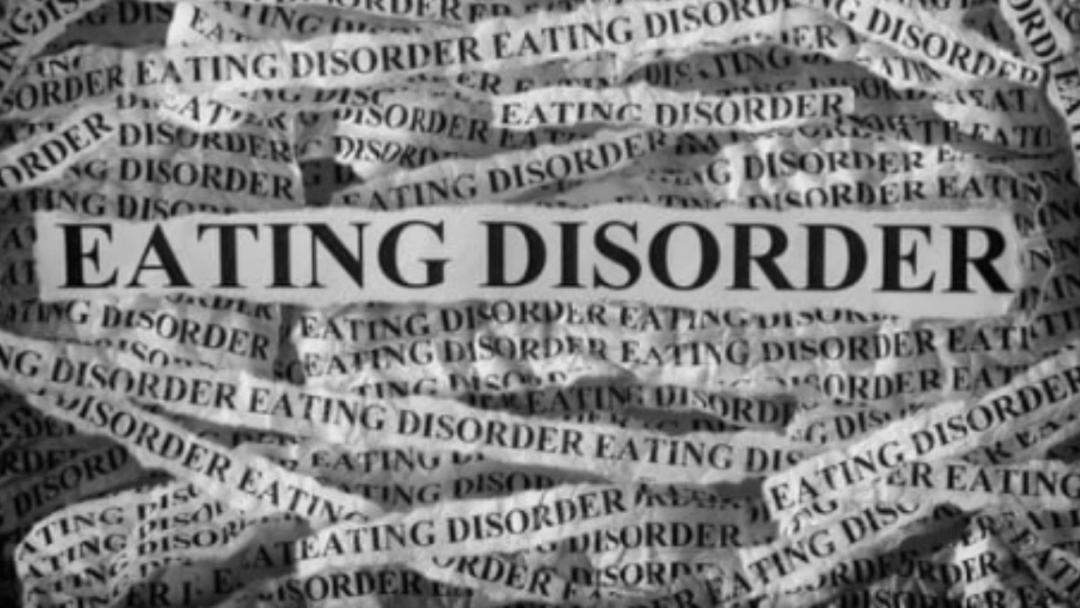Eating disorder plays with mental health and physical health, and most of the time, it is the most neglected disorder. This term may sound like it is related to the food we eat, but it’s more than that. It is a psychological condition that causes unhealthy eating habits. An attraction with food, body weight, or body size might be the starting point of developing eating disorders.
Almost everyone in the world is now conscious about their health, eating habits, or bodyweight. So, how this consciousness can result in such a severe health problem, i.e., Eating disorder. Let’s explore more about eating disorders, and their type, and symptoms.
What is Eating Disorder?
An eating disorder is a mental disorder defined by abnormal eating habits that negatively influence physical and psychological health. Their symptoms include severe food restriction, food binges, purging behaviors like vomiting or over-exercising.
Who gets an eating disorder?
Teenagers use media to find a community, but the culture of comparison negatively hits their mental health.
Both men and women can witness this and at any age, common in adolescents and young women. Youth with eating disorders typically reported functional impairment, distress, suicidality, mental health treatment, and unhealthy body mass index.
Types and Symptoms of Eating disorders:
- Anorexia Nervosa: It is a well-known eating disorder and develops during adolescence or young adulthood and mostly affects women more than men. People with anorexia nervosa view themselves as overweight, even if they’re underweight. They continuously monitor their weight, avoid eating a certain type of food or severely restrict calories. It is characterized by self-starvation and excessive weight-loss.
Symptoms:
- Being underweight as compared to the people of the same age and height.
- Very restrictive eating pattern because of extreme fear of getting fat/ gaining weight.
- It is interfering with the weight gain despite low weight by fasting and excessive exercising.
- A constant pursuit of slimness and unwillingness to maintain a healthy weight.
- A Distorted body image, including refusal of being severely underweight.

Anorexia nervosa holds the highest death rate of any mental disorder. Many people with this disorder might die due to complications linked with starvation, and others die of suicide.
Behaviour:
People with this are preoccupied with the thoughts about food and may have difficulty while eating outside. Anorexia Nervosa can be of two types: Restricting type and binge eating and purging type. In the restrictive type, a person loses weight only through dieting, fasting, or excessive exercising.
Whereas in binge or purging type, a person may binge on a large amount of food or eat very little. They purge using actions like vomiting or exercising excessively and sometimes taking laxatives or diuretics in both cases. Anorexia nervosa is very dangerous in the long term.
It might cause thinness of bones, brittle nails and hair, infertility, and severe cases, resulting in brain, heart, or multi-organ failure.
- Bulimia Nervosa: It is another common eating disorder, which might occur in adolescents and early adulthood, less common among men than women. People with this eating disorder eat a large quantity of food in a short period of time and then purge. They usually binge on the food until they’re painfully full. Most of the time, they binge eat something which they would generally avoid.People think that they can’t stop eating or have no control over how much they’re consuming during binge eating. They try to purge to neutralize the calories consumed and reduce gut discomfort. They do that through vomiting, fasting, excessive exercising, or taking laxatives or diuretics. Symptoms of bulimia nervosa might appear similar to the binge eating or purging subtypes of Anorexia nervosa. However, people with this disorder can have normal weight, underweight, or overweight.

Symptoms:
- Repetitive experience of binge eating with a feeling of lack of control.
- Reoccuring event of purging behaviors to avoid weight gain.
- Self-esteem is controlled by body shape or weight.
- Fear of gaining weight, even after having a normal body weight.
- Feeling guilty or ashamed about eating food.
Persons with bulimia nervosa might experience severe problems like inflamed or sore throat, swollen salivary glands in the neck and jaw area, acid reflux disorder, dehydration from purging of fluids, electrolyte imbalance, which can result in a stroke or heart attack.
- Binge Eating disorder: As the name suggests, in this eating disorder, people binge eat a large volume of food in a short time and feel a lack of control. It begins at adolescence and early adulthood, although it might also occur at a later age. Binge eating disorder has symptoms similar to bulimia or binge eating subtype of anorexia nervosa. People with this disorder don’t restrict calories or use any purging behaviors like bulimia or anorexia to compensate for their binges.

Symptoms:
- Eating a large amount of food in a short time until uncomfortably full despite not feeling hungry.
- Feeling of lack of control during binge eating.
- A feeling of shame or guilt, thinking about the binge-eating behavior.
- No use of purging behaviors like vomiting, excessive exercising, or laxative or diuretic use to compensate for binging.
- Eating isolated or in secret to avoid embarrassment.
People with this disorder might have obesity, which increases their risk of medical complications associated with excessive weight gain like heart diseases, Type-2 diabetes, and stroke.
- Rumination disorder: It is a disorder in which a person regurgitates the food already chewed and swallowed, rechews it, and then either eat it or spits it out. This eating disorder is common in infants, children, and adults. It probably occurs within the first 30 minutes to 2 hours after a meal, and unlike reflux(a medical condition), it is voluntary. During infancy, this tends to develop between 3-12 months of age and, most of the time, disappears with age. But, children and adults might need therapy to resolve this disorder. Infants with this eating disorder might suffer from nutrients deficiency and excessive weight loss that can cause a problem in their overall development. Whereas adults with this disorder may restrict the amount of food, they consume or even avoid eating outside. This disorder can lead them to excessive weight loss and become underweight.
Symptoms:
- Weight loss.
- Bad breath
- Stomach ache or indigestion
- Tooth decay
- Dry mouth or lips.
- Pica: This eating disorder is all about eating the things that are not considered food. People with this disorder crave things like chalk, soap, ice, paper, hair, cloth, detergent, corn starch, etc. It can occur in childhood, adults and sometimes observed in pregnant women or persons with mental disabilities. Pica increases the risk of infections, gut injuries, and nutritional deficiencies.
There are other eating disorders like night eating syndrome, in which a person eats excessively after awakening from sleep.
Takeaways:
- Anyone can experience these disorders and symptoms, which vary from person to person.
- Eating disorders are mental health conditions that sometimes require treatment, and it is essential to recognize them first.
- If you have witnessed any of those symptoms, you should consult your doctor for better guidance.
- The eating disorder will harm your mental health and physical fitness because of nutritional deficiencies and other weight loss or weight gain problems caused by them. Don’t get too attached to the weighing scale.
- Most of the time, people are not aware of this, and this disorder remains neglected for a long time, which worsens the conditions if left untreated.





12 Comments
Rimi Mondal
February 7, 2021 at 11:18 am😊😊😊😊😊😊your posts always make me feel good…..
Energetic reads
February 7, 2021 at 11:37 amThank you Rimi 💞
Madhu
February 7, 2021 at 12:19 pmEvery week! Yu never fail to amaze usss!❤️❤️❤️
Energetic Reads
February 23, 2021 at 4:19 pmThank you so much 🙂
Indiacafe24.com
February 10, 2021 at 10:13 amYou are outstanding in choosing the topics to write and I admire you for that. Keep sharing such contents to amuse readers.
Energetic Reads
February 23, 2021 at 4:19 pmThank you dear 🙂
Sweety Joshi
February 14, 2021 at 3:34 pmVanadana Sharma,what to say. You amaze me in your every post. Everything is just perfect and valuable. I loved this post. Super informative and useful. Thanks 😊
Indu
February 14, 2021 at 11:36 pmNever known about this its really an useful information please sharing more content like this
Energetic Reads
February 23, 2021 at 4:19 pmThank you, Sweety 🙂
Kiwi Tandon
February 14, 2021 at 4:07 pmOmg ! Got to know so many new things today ..this post is super informative and excellent . You always comes with good topics 👍
Energetic Reads
February 23, 2021 at 4:20 pmThank you, dear 🙂 Glad you liked it 🙂
Pipit ZL
April 1, 2021 at 2:01 pmI eat more when stress